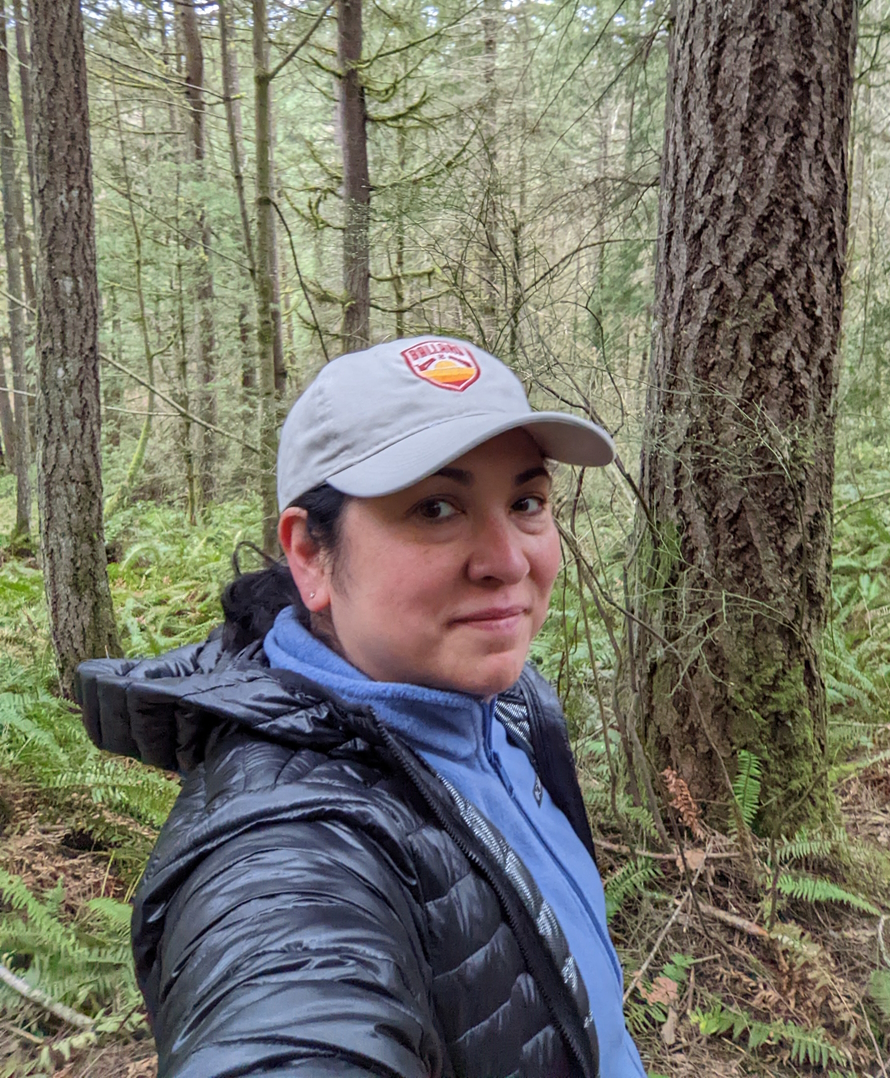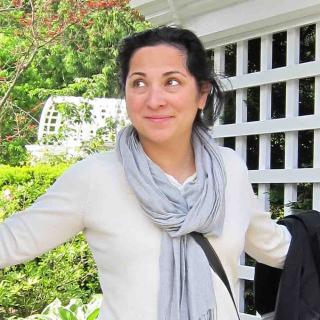
Photo:
Credit: Kali Sakai
Humpty Dumpty sat on a wall.
Humpty Dumpty had a great fall.
All the king's horses and all the king's men
Couldn't put Humpty together again.
— English nursery rhyme
The death of my husband from cancer in 2021 fractured me into a thousand pieces, and, like Humpty Dumpty, I thought I’d never be whole again. While all the king’s horses and all the king’s men *might* have had ideas for Humpty, I have continued to rebuild a newer version of myself through efforts of self-care. Sometimes the general concept of self-care can feel out of reach when balancing work, kids, expenses, expectations and, of course, grief. But therapeutic and healing benefits come in many different forms.
I asked some Seattle-area widow(er)s about self-care as well as Cancer Pathways program manager and licensed therapist Michelle Massey. She notes that the typical idea of self-care may not cut it for everyone.
“You might have a lot of suggestions from friends or family, such as take warm baths, light candles, take naps, have a massage, aromatherapy — all of these are wonderful things, but your grief may be so severe that these things may or may not help, or, as I call it, your emotions might be ‘way past the lavender.’”
So, what can self-care look like?
Self-care can be not doing things, such as saying no to events and people who zap your energy, or easing way up on yourself. Widower Matt Briggs set a self-care goal to not make major decisions in the first year post-loss, especially “no rage quitting, selling the house or midlife crisis stuff.”
Likewise, self-care could be just subtle things, such as taking a few focused breaths when you wake up or at bedtime, treating yourself to a special beverage ritual each morning or making a set plan to exercise daily. Hanni P., a Seattle widow and mom of two kids, sums it up best: “Take life one day at a time. Care for yourself where you can, but don’t feel bad if you can’t fit into society’s grand definition of self-care. Rest more!”
But if you’re up for it, self-care could be a complete rediscovery of who you are. Kirkland widower and dad Adam Smith suggests, “Find what invigorates you and go do it. Get out and try new things, meet new people. Find a way to thrive as an individual again.”
Get outside
Regardless of what level of self-care you can muster, almost everyone I spoke to suggested getting into nature. Annie Kuo, a widow and mom from Shoreline, says, “When it seemed that nothing but the expanse of the universe could contain the depths of my grief, the endless fresh air, ocean, trees and mountains resonated with me.”

Even I, a self-professed “indoor cat,” tried the curiously named activity of forest bathing in the Seattle Arboretum and I found it quieted my mind and helped me see beauty in the world. Massey agrees, “Get outside, even if you don’t feel like it. Get up and go for a walk, go for a drive. Show yourself that the world is continuing and you will continue with it.”
Wellness team
In those first post-loss months, I felt an intense need to gather a team, like a race car pit crew, to get me back on track. I sought help from wellness professionals in areas I was familiar with, such as acupuncture, massage, naturopathy, chiropractic care, yoga, fitness training and talk therapy. To have maximum time flexibility with fitness, I used online memberships to Yoga With Adriene and Community Fitness.
But no matter the size of your team or what their specialties are, it is simply important to be supported by knowledgeable professionals who can meet you where you are. I actually discovered via my naturopath that I have a gluten sensitivity, so my diet became a big focus. Massey notes, “Nutrition is especially important during grief … if people want to help you by bringing over food, have it be nutritious food to help your body heal.”
Soothing behavior changes
Many widows I spoke to encouraged removing the “shoulds” out of your life and taking the pressure off of what you think people expect of you, which tends to show up in the mental and emotional work widows do for others.
”One of the biggest injustices of grieving in our culture is we end up trying to make everyone around us feel better about how we are feeling,” notes widower and Seattle dad Brian Hartzman. Whether done out of courtesy, avoidance or some other reason, it’s a burden and takes up valuable energy. So, allow people to be responsible for their own feelings and reactions.
I also think the value of a good cry is underrated. I used to resist crying, but holding it back gave me headaches. Now, I just let the tears flow when I feel a crying wave coming, because I always feel better afterward.
Finding a community
Over and over, widow(er)s emphasize that finding a community to share experiences, gain support and not feel isolated helps. Massey advises, “The main thing is to reduce isolation by increasing your support community, and allow yourself to feel the process and lean on [others].”
Put effort into prioritizing yourself and carving out time in your schedule for this. Even if it requires asking or hiring someone to watch your kids on a regular basis, think of it as a necessary healing step.
Recommended programs include:
- The Healing Center
- Providence Hospice/Safe Crossings
- Club Wid
- PNW Widows
- Soaring Spirits
- Cancer Pathways (formerly Gilda’s Club)
- Forced Joy Project
- GriefShare
In the modern world, there are ways to connect with others who are not in the same location or time zone. Podcasts, blogs and video content created by widow(er)s talking about familiar experiences can provide catharsis and a sense of connection when we need it. There are also communities that form around these content creators. Before I became a widow, I had no idea this subculture existed, but I am sure glad it does. I’ve gained so much insight from their raw, brave and profound observations. Here are just a few recommendations.
Podcasts:
- Widow We Do Now?
- The Aware Parenting Podcast
- Dating After Death (community offering also)
- Death Is Hilarious (community offering also)
- Widowed Parent Podcast
Instagram:
- Nora McInerny
- Forced Joy (community offering also)
- Spilled Milk Mamma
- DC Widow
It can take every ounce of strength to guide yourself and your children through the journey of loss. But making time and space for your own healing is, in itself, a heroic act.
“Have grace for yourself, even if others don’t, because you are the one living this life — and you’re accountable to no one else but yourself and your family,” adds Kuo.
Essentially, being kind to yourself is the most important step as you move through your grief and put yourself back together.
More perspectives on widowed parenting |











